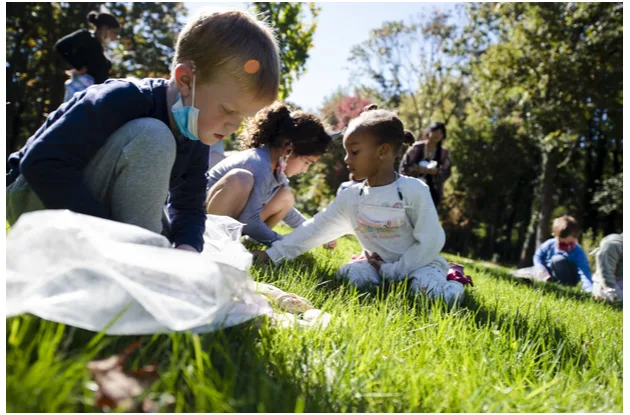Many people know that intelligence plays a key role in a child’s academic achievement. But many parents do not know that a child’s ability to self-regulate — to pay attention to a task and inhibit impulsive behavior — is actually more predictive than intelligence for early academic success.
Simply put, children who can control their impulses do better in school.
This was recently discovered by a team of researchers at Penn State University led by psychologist Dr. Clancy Blair. The study focused on 3 to 5-year-old children and showed that preschoolers’ capacity for self-control was the best predictor of their performance in math and reading in Kindergarten. Scores on intelligence tests, which for a long time were thought of as the most predictive of academic ability, was actually less correlated with academic achievement.
A child’s ability to monitor his or her thinking and behavior develops very rapidly during the preschool years. Psychologists call this aspect of self-awareness, metacognition, or the ability to think about one’s own thinking. School-age children who begin to ponder questions, and ask themselves, “what was I thinking when I…,” can often develop improved self-regulatory capacities Alternately, parents can ask a young child, “what were you thinking about when you…” in order to help children be more reflective and less impulsive.
In addition to efforts by parents, preschool programs can support young children develop skills in the area of self-regulation. Parents should encourage regular activities to decrease impulsiveness and instant gratification. In general, when parents reinforce children’s efforts to delay gratification, children can reap rewards when they enter their school-age years if this capacity is implanted in their behavioral repertoire. Playing board games with ups and downs like Chutes and Ladders can help children to see the various means to an end. The excitement of winning and the disappointment in losing can be mitigated by parents who de-emphasize their own responses to wins and losses, and emphasize the fun in playing the game.
Regulating one’s own reactions and modeling can be instrumental in teaching young children to do the same. In addition, efforts such as these can promote attention and awareness of one’s own and others’ thoughts and feelings.
Parents of young children who are focused upon readying their children for entering Kindergarten often rely upon enrolling their 2 to 4-year-olds in preschools. And while this may be the single best way to help prepare your child for school, parents can also engage their children in activities that will promote self-regulation and improve their children’s readiness for Kindergarten. Parents who are focused on promoting self-regulation engage their children in activities that emphasize games that involve taking turn and paying attention for sustained periods of time. Parents can also give incentives for thoughtful responses.
Often, parents do not take the opportunity to discuss the importance of regulating oneself with their children. Most importantly, parents need to serve as models for these behaviors and then verbally mediate their reflective, non-reactive behavior with their child. Parents can work together with their child “coincidentally nearby,” taking turns with the remote control or sections of the newspaper. Parents can compliment each other for their thoughtfulness. Parents who pay active attention to each others efforts to be thoughtful by verbalizing their appreciation increase the likelihood that their children will develop self-regulatory abilities. Children’s incidental learning of these skills are enhanced when parents remain mindful of their importance.
Dr. Alan Tepp is a genConnect.com expert on relationships and caring for special-needs children. Dr. Tepp is a consulting psychologist at the Northern Westchester Hospital Center in Mount Kisco, NY. He maintains a private practice for the evaluation of children and adolescents with learning and emotional disorders in Mount Kisco, Fishkill and Ridgefield, CT and has consulted with and offered professional presentations for school districts throughout the New York State area.
Also see: The Must-Have Skills Every Child Needs to Succeed in Life





















